Year 5/6 Bulletin
A snapshot into Reading

Year 5/6 Bulletin
A snapshot into Reading
This term, our reading focus includes building students’ word consciousness,the ability to notice, explore and understand unfamiliar or surprising words as they read. This is especially important as students investigate science-based questions and topics for their ERPs. Scientific texts are filled with new vocabulary and words we think we know… but may not fully understand. For example, many of us have heard the term “greenhouse effect” before, but what does it really mean, and how does it work?
We’ve been using the strategy “Expect to learn new words (or see familiar words used in new ways)”, helping students read with curiosity and confidence. This supports not just reading comprehension but also oral language, writing, and critical thinking, especially when reading scientific and non-fiction texts.
Learning intention: to use the strategy "Expect to learn new words" so we can monitor our understanding and build vocabulary as we read.
We began by modelling how to read a scientific passage (about fossil fuel use in Australia), with a focus on identifying unfamiliar words or known words used in new ways. As a class, we discussed what it means to turn our “word radar” on, stopping when something doesn’t make sense and using clues from the sentence or word parts to try and figure it out.
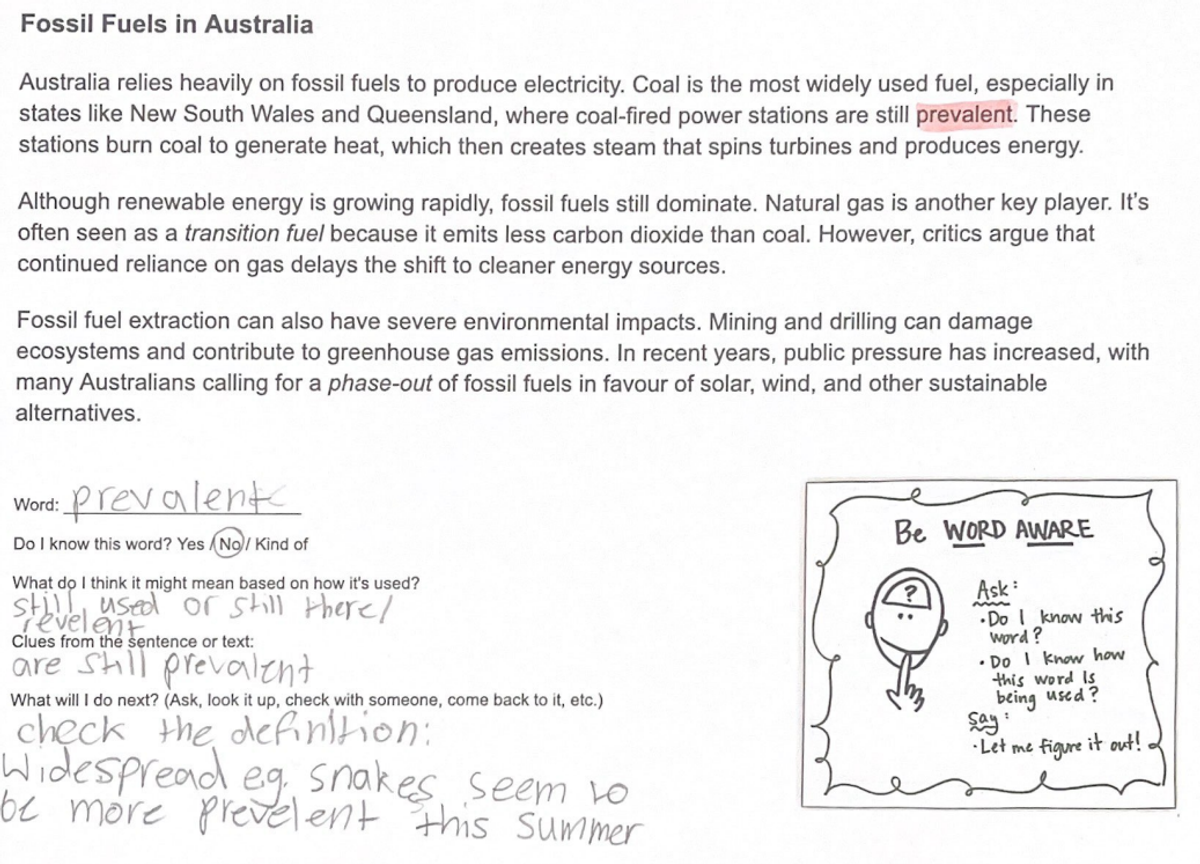

Small Group- Teacher-Led Focus Group
Learning Intention: Learning to build our vocabulary and deepen our understanding when reading scientific texts by being more ‘word aware’.
Students then worked in differentiated reading groups using texts about the greenhouse effect, carefully chosen to match their reading and comprehension level. Each group used a “Word Detective” scaffold to select one or more focus words from the passage and explore their meanings.
The small group format encouraged deeper discussion, supported decoding strategies, and gave space for every student to have a voice. Groups used sentence clues, discussion and dictionaries to break down tricky vocabulary.
Connections were also made to our spelling program, particularly around morphology (prefixes, suffixes, and root words) and the origin of scientific language. For example, students explored how the prefix “re-” (meaning “again, back or renew”) connects to both “renewable” in science and “recount” in writing. We also discussed how vocabulary like “emissions” or “data” appears across learning areas, including maths investigations. These links helped students see how transferable word knowledge can be.
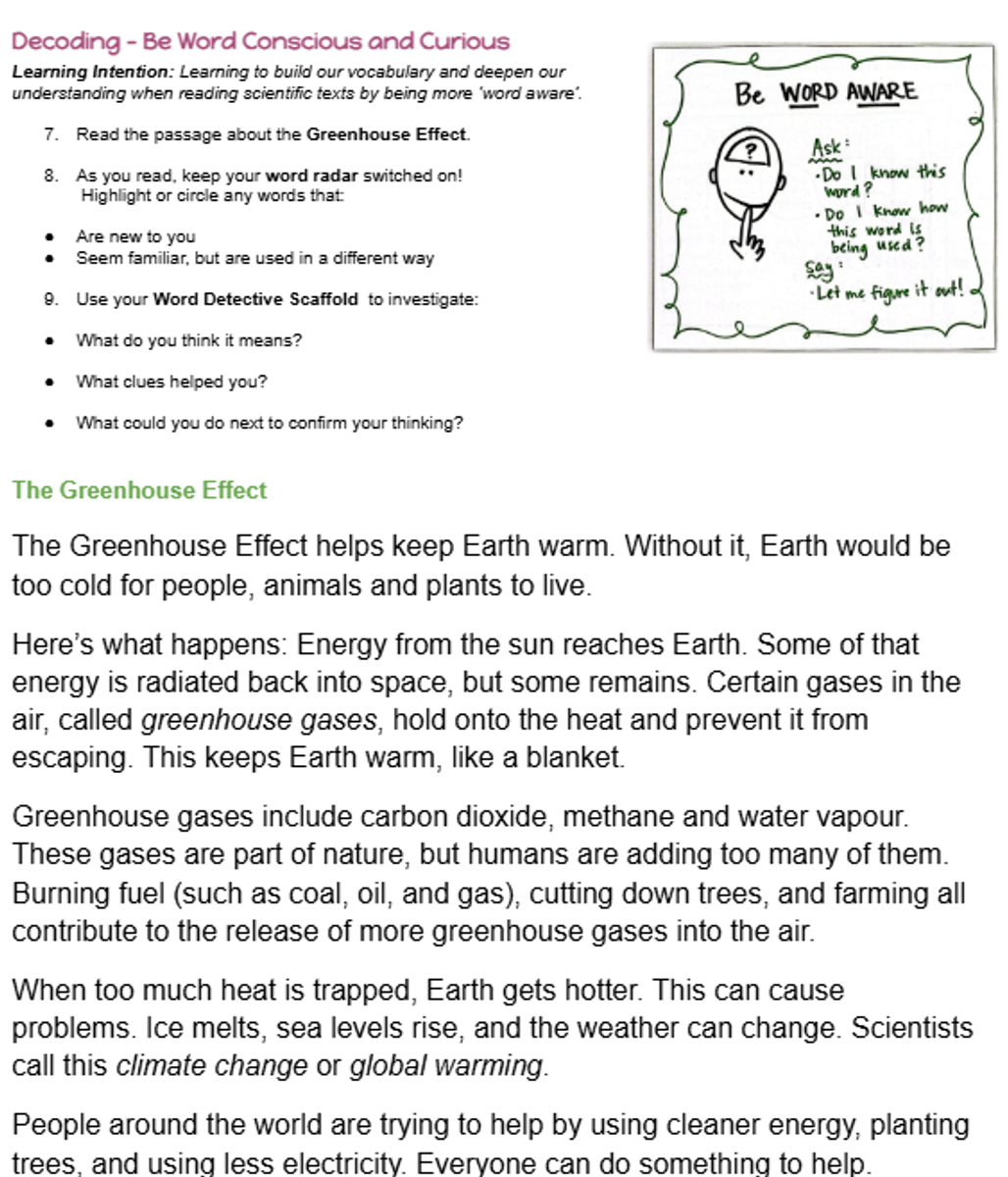
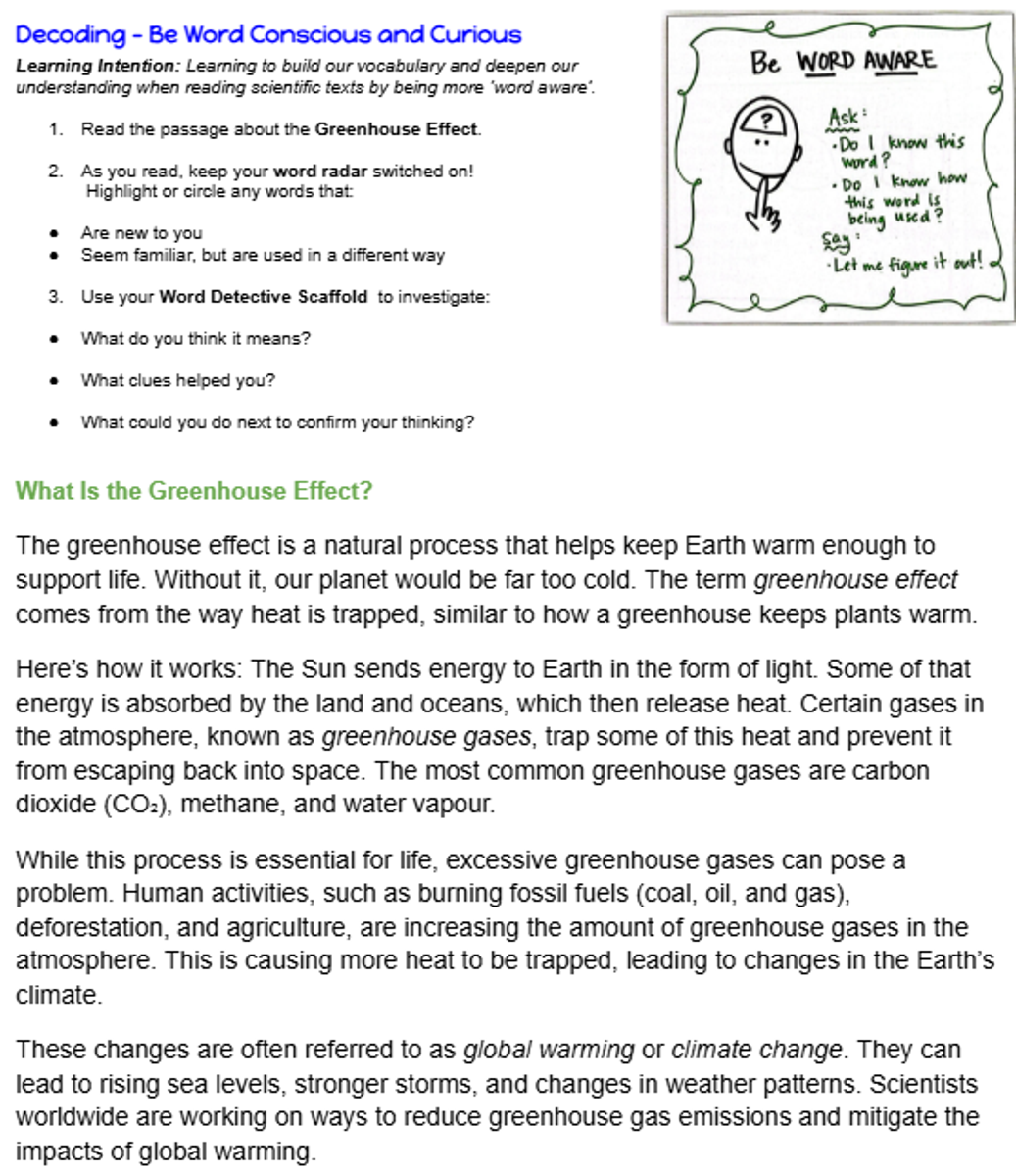
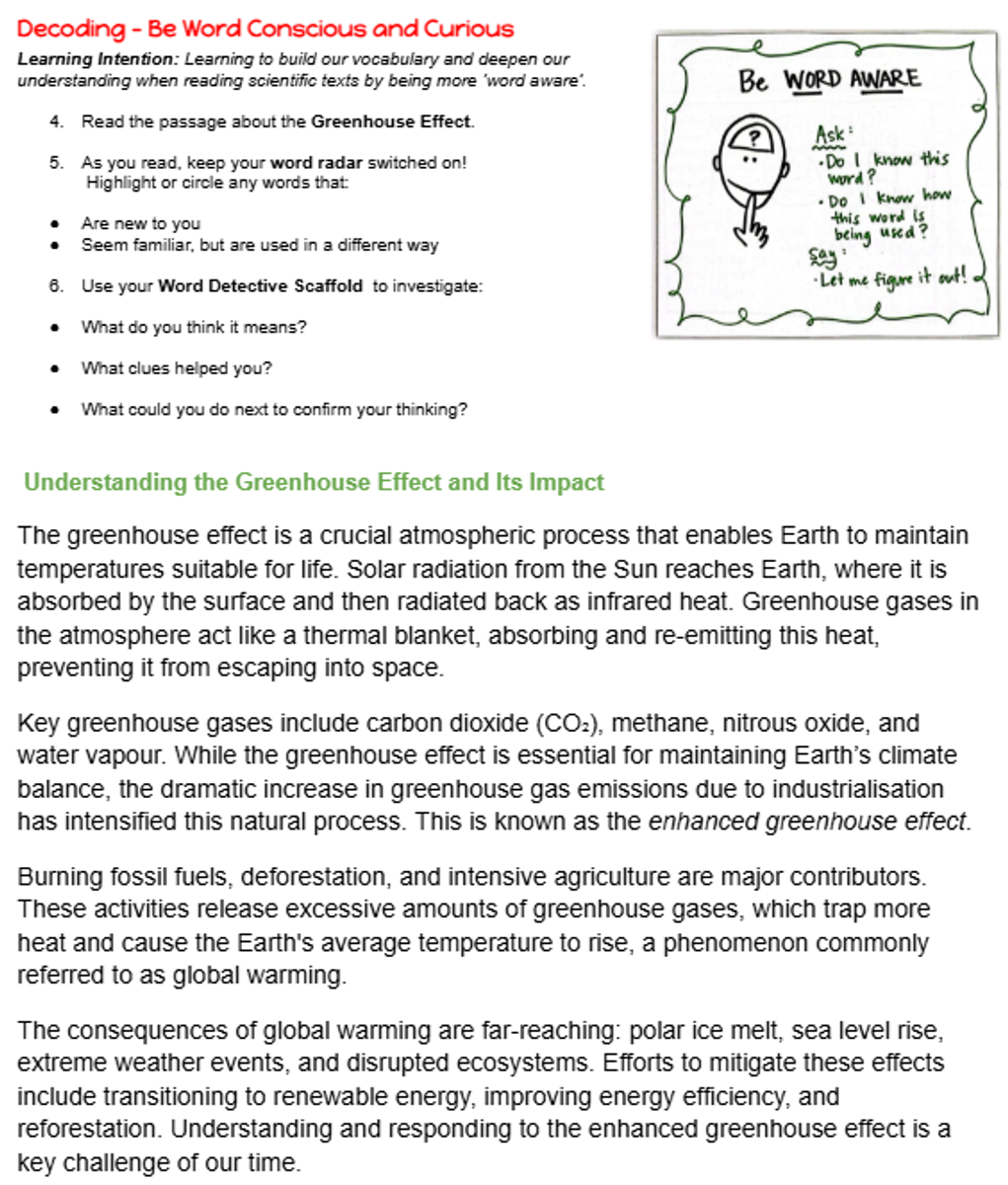



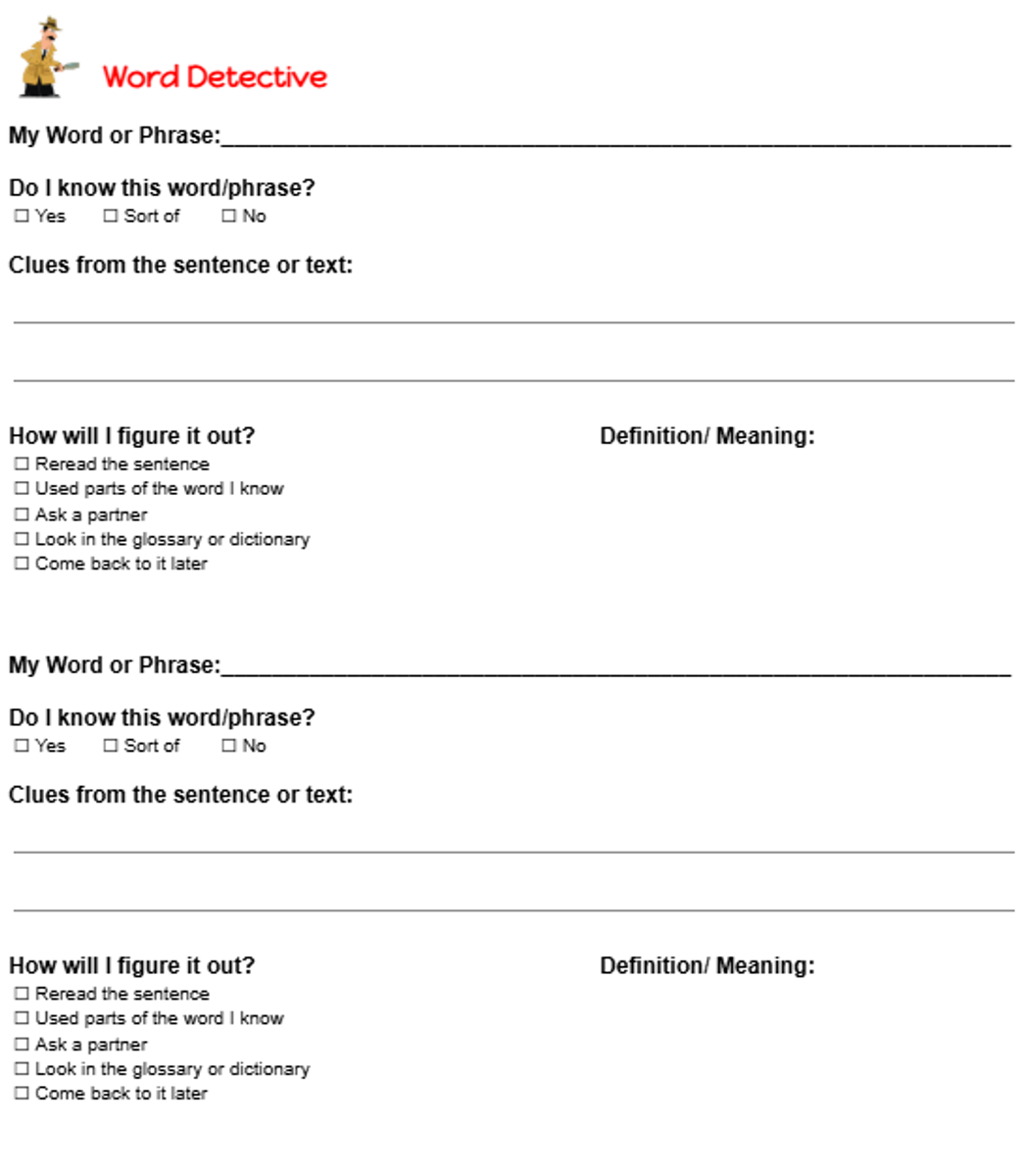
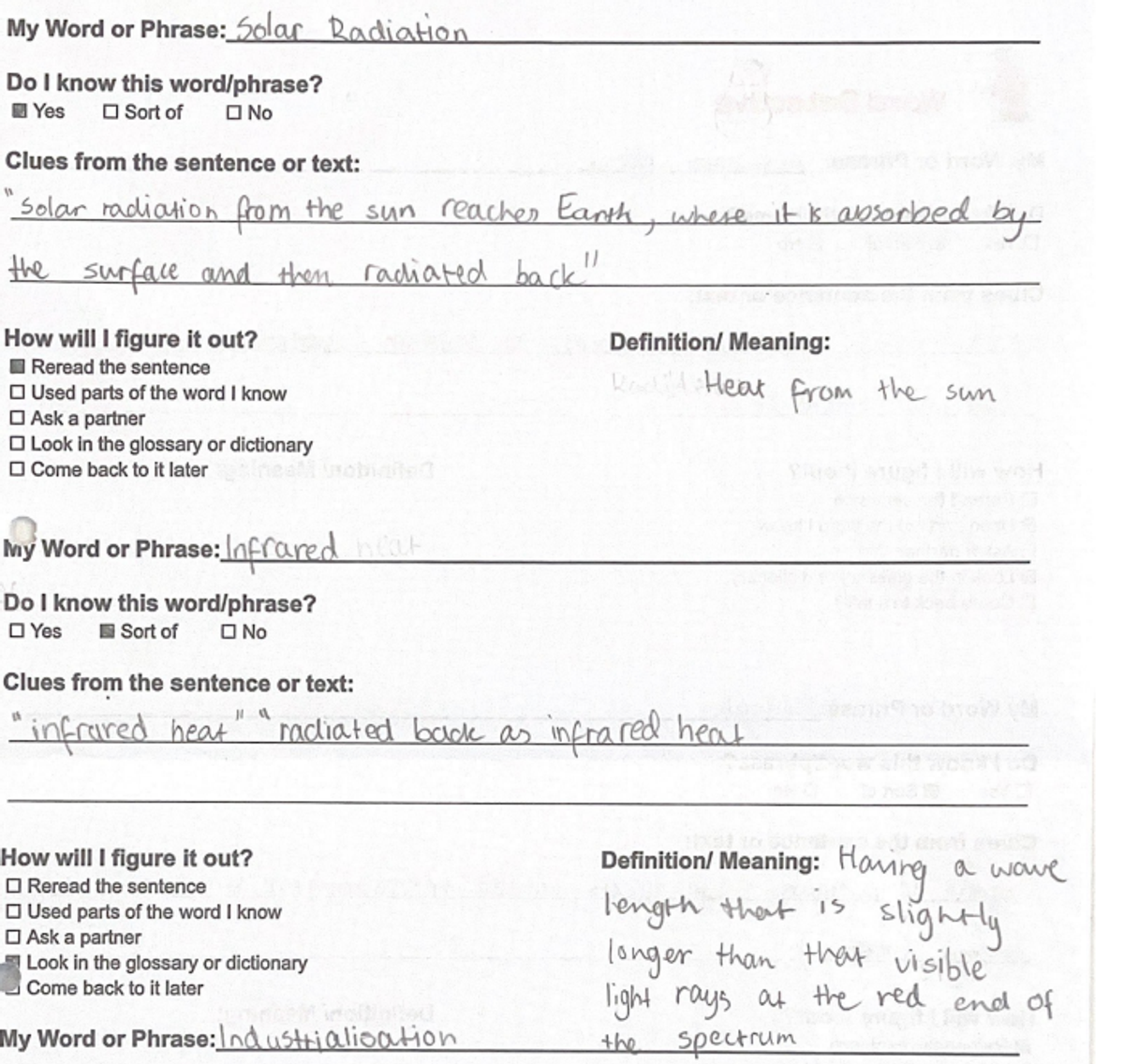
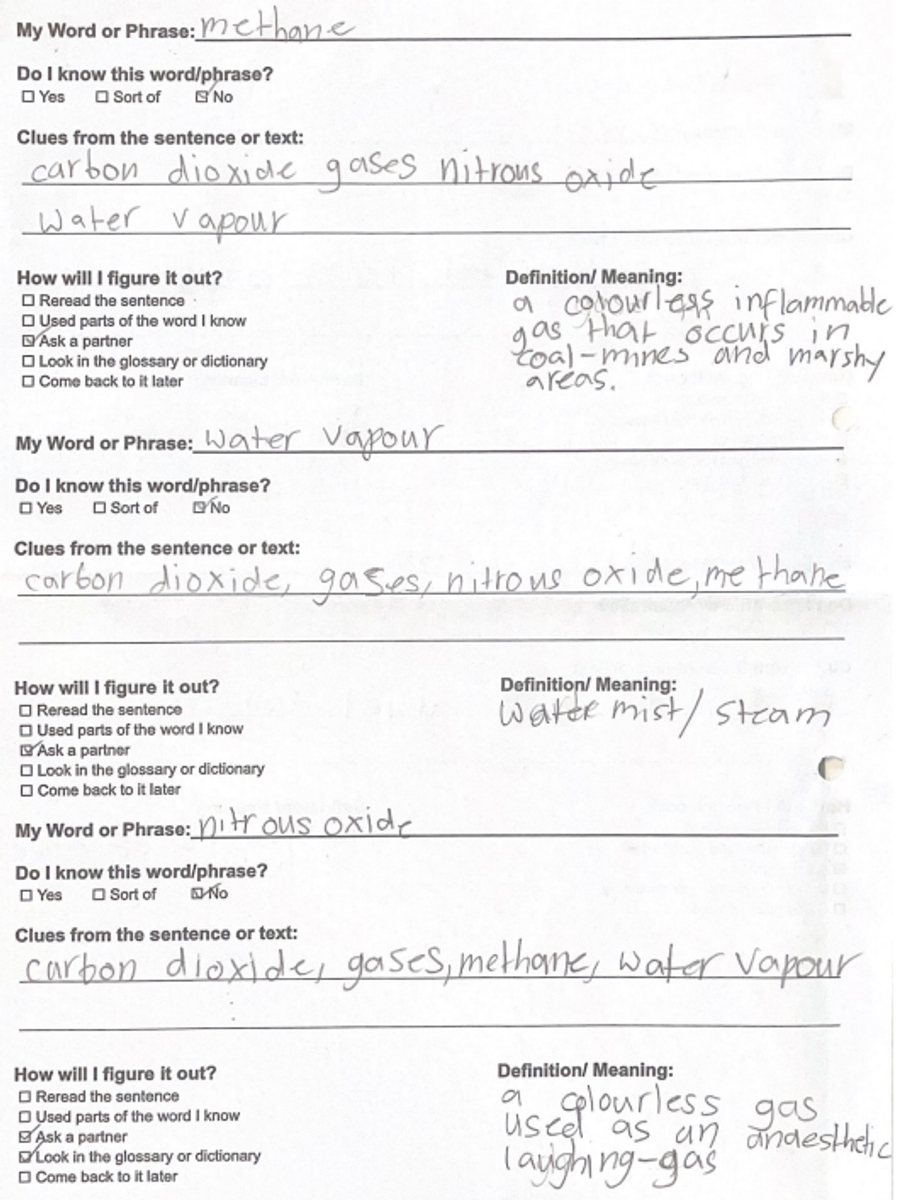



Whole Group:
To wrap up the session, we came back together to share what each reading group had discovered. We noticed that even though the groups were reading slightly different versions of the same topic, many of the tricky or interesting words overlapped. Words like carbon dioxide, emissions, and climate change sparked thoughtful discussion. Students reflected on how their word knowledge had grown and how being aware of scientific language would help them when reading more complex texts during their ERP research. We also talked about how understanding these key words makes it easier to explain our thinking clearly, both in writing and when presenting information to others.
How You Can Support at Home
Here are a few simple ways families can continue to build vocabulary and confidence at home:
Talk about tricky words in everyday life: headlines, signs, TV, even sports commentary!
Happy reading everyone!
Jenny and Luca
Year 5/6 Team